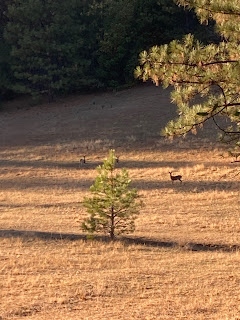As an individual of scattered and varied interests, it is rare to find a book where two interests are combined in the same volume. It is even more rare to find three or more.
Fortunately, once in a while even I am surprised
Just Enough: Lessons From Living Green in Traditional Japan by Azby Brown happens to be one of those rare intersections of sustainability, agriculture, self sufficiency, history, conservationism, and even a little bit of Samurai.
The Author (Ph.D., University of Tokyo), takes a rather unique and unusual road to the concept of discussing the concepts of sustainability and design (his area of focus): he takes on what is essentially a travel journal in Kansei 9 (Reginal year 9 of the Kansei Emperor, or 1798) through what would have been the three major settlement types of Japan of that period: a small agricultural village, a suburban area of Tokyo, and a lower level samurai home in the upper.
Japan was in some ways unique in that after for 220 years (1634 to 1854) it enforced a policy of sakoku, or isolation (literally the Kanji mean "closed country"). Other than some trade with Korea and Qing China and to a lesser extent the Ainu of Hokkaido and Ryuku Kingdom, its interactions with the world were limited to the small amount of materials that came through the island of Deshima in Nagasaki. Its development and support was largely forced to be based on internal materials and internal practices.
We (the readers) assume the role of a travelers (a not uncommon thing in Edo period Japan), making our way to the agricultural (and fictional) village of Aoyagi, then to the capital of Edo (now Tokyo) to visit a carpenter as well as the home of a lower level samurai.
At each of these locations, Brown goes into great descriptive detail of what we see not only in the architectural arena but also in the areas of clothing, food, utensils, and general living conditions. He has an eye for detail and a hand to match; his sketches throughout the book really give it a flavor of a traveler's journal rather than simply a book:
Thatching a roof:
Interior of a Japanese Toilet:
Grounds of a lower level Samurai:
At the end of each section, Brown then derives principles from each of the places we have visited and tries to apply them to the then (2013) world in terms of design, sustainability, and relations.
As you can imagine, I really enjoy this book. This is the first time I have picked up since I purchased it in 2014 and it remains as relevant or more so than when I first read it; in some ways it may be when the concept of Ichiryo Gusoku (One plot of land, one suit of armor) took root in my soul.
That said, as always there are a couple of caveats, which Brown hints around but carefully avoids discussing in further detail.
1) The context of this book takes place in the period of the Tokugawa Shogunate (1600-1868) which represents overall a period of great peace in Japan. It was the outcome of the previous 120 years of the Sengoku Jidai (The Age of the Country at War) and was designed to keep the peace. As a result, the Tokugawa was an authoritarian governmental structure. The local lords (Daimyo) ruled their individual provinces (Han), but were always overseen the government in Edo. Lords had to spend every other year in Tokyo and their wives and children were continually kept there as a guarantee against rebellion. The government dealt harshly with rebellion and anything it considered to be a threat against it. Brown acknowledges that this government existed; the extent to which these authoritarian structures created this life style is not fully considered.
2) Japanese society through the Tokugawa Shogunate was sharply divided into four classes: Farmers Artisans, Merchants, and Samurai (with a few minor outliers such as monks/clerics, doctors, and the burakumin, the untouchables that performed the work no one else would). Farmers were taxed up to 50% a year and were sometimes forced to perform corvee labor. In a way, the lifestyle of reduce/reuse/recycle developed as much from the poverty of the lower classes and their inability to move forward as it did from any sense of sustainability.
Admittedly as I look at those, they both appear to be a bit harsh criticism of the book and are not meant as such - but if we are going to acknowledge the wisdom of their practices, it is intellectually dishonest to not acknowledge all the whys it happened.
As I said above, I do love the book as a very different way to look at things and a very enjoyable read. I would heartily recommend it to anyone.
(Note: In pulling down the picture of the book cover at Amazon, I noted that there are not any new copies currently available and the used versions are going for $91(!). I assure you that was not the cost when I purchased it. It is the same at Alibris. I can only recommend (if you are so interested) you buy it as an e-copy or get exceptionally lucky at a used book store).




























